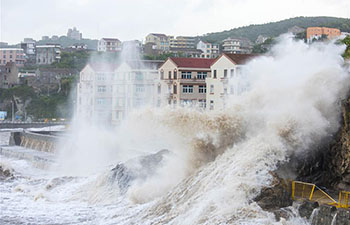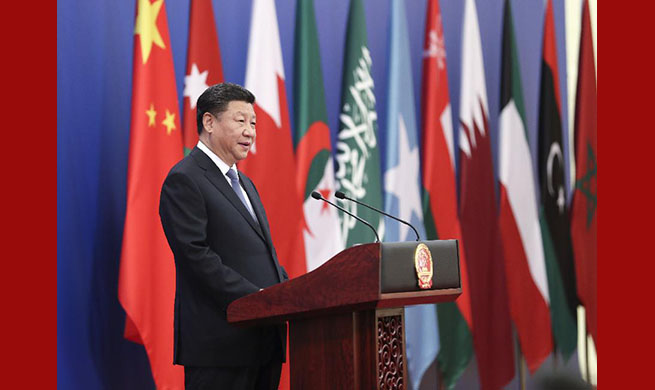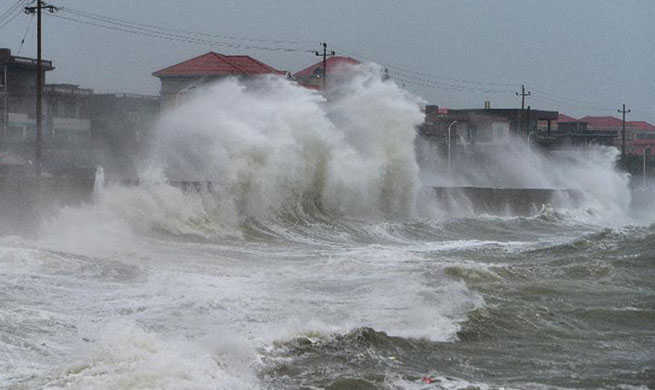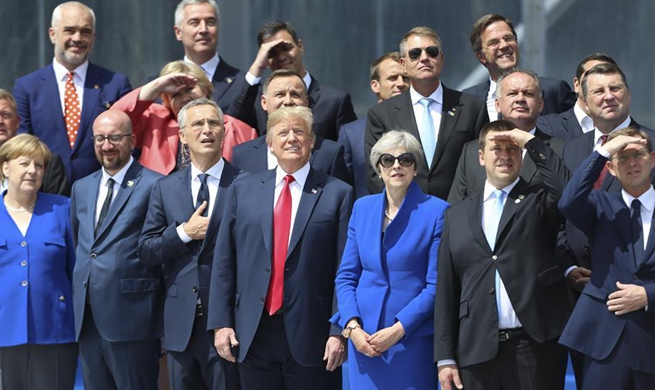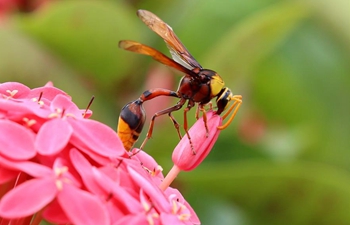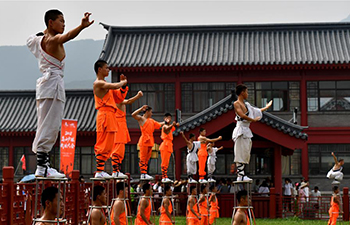by Keren Setton
JERUSALEM, July 11 (Xinhua) -- The Israeli military downed a Syrian military drone that entered Israeli airspace on Wednesday afternoon, just hours after Israeli Prime Minister Benjamin Netanyahu left for Moscow to meet with Russian President Vladimir Putin.
According to the Israeli Defense Forces (IDF), the drone was monitored closely until a single patriot missile was successfully fired at it, 10 km into Israel. Its remains landed south of the sea of Galilee. There is no mention of who launched the drone.
The meeting between Netanyahu and Putin is to be their ninth meeting in the last three years. At the end of the meeting, the two leaders watched the World Cup semi-final which is being hosted by Russia.
The downed UAV (unmanned aerial vehicle) was another reminder as to how volatile the region is.
Syria has been heavily involved in internal strife for several years now, with occasional incidents of stray fire penetrating Israeli territory.
Israel has made its policy to respond to every fire towards its northern part of the territory, whether intentional or not, claiming a breach of its sovereignty.
Outside forces came in and intervene the Syria crisis, making the country a battlefield for a proxy war.
Hezbollah, a militant organization from Lebanon, is believed to have thousands of fighters in Syria in order to help President Bashar al-Assad retain power.
Hezbollah group and Israel fought a bitter war in 2006. Backed by Iran, Israel's arch-enemy, the militant group is seen as one of Israel's biggest threats on its northern border. It is believed to possess hundreds of thousands of missiles that can threaten cities all over Israel.
In the past three years, Russia has also sent forces to Syria in an attempt to bolster Assad. In recent weeks, Assad has made victories in varying areas in Syria, regaining power in places which he had lost his grip.
The timing of the Putin-Netanyahu meeting Wednesday is considered not as coincidental. Israel sees the recent developments in Syria as critical to shaping the future, in which the Israeli leader does not want Iranian presence in Syria. But it is unclear how much clout Netanyahu has with Putin yet.
Israel has reportedly carried out tens of strikes in Syria against militant groups, such as Hezbollah, transporting weapons to be used in future attacks on Israel.
Earlier this week, media reports coming out of Syria said an Israeli airstrike hit a Syrian air force base. Israel did not confirm or deny the report.
Lt. Cl. Jonathan Conricus, a spokesman for the IDF, told reporters on Wednesday that the military "made sure in real time that the UAV was not a Russian one," hinting to direct contact with the Russian army.
"We will not tolerate any threat or harm against Israeli civilians or Israeli sovereignty," Conricus said during the briefing.
"As long as there is coordination," said Yehuda Blanga, an expert on Syria and Egypt from the Department of Middle Eastern Studies at the Bar Ilan University in Israel, "there is an understanding between the Russians and Israelis."
"I do not remember any other Israeli leader that has met so frequently with a Russian leader. This is testament to unprecedented cooperation between the two countries," he added. While it is clear that Israel does not have Russia's international stature, Putin is attentive to Israel's needs which are confluent to some of his interests.
"I very much appreciate the excellent direct connection, without intermediaries, between myself and the Russian president. It is very important for the national security of the State of Israel," Netanyahu said before leaving for Moscow.
A day before the trip, the Israeli PM met with senior Russian envoys at his Jerusalem office.
"The Russians are about to lead a major political move in Syria that is supposed to end the war, and this is an excellent opportunity for Netanyahu, in light of the very good and close relationship between the two countries, to promote the very clear Israeli interest of eradicating Iranian and Hezbollah presence in Syria," Blanga told Xinhua.







